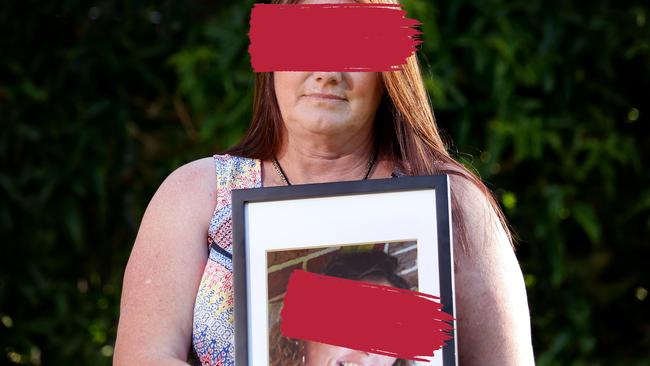Mental Act review demand: Telegraph calls for changes to law that allows details suppression
HUNDREDS of the state’s most vile and vicious criminals are being secretly protected by the state — with their fate and whereabouts unknown.

NSW
Don't miss out on the headlines from NSW. Followed categories will be added to My News.
HUNDREDS of the state’s most vile and vicious criminals are being secretly protected by the state — with their fate and whereabouts unknown.
NOTE: The Press Council found this article did not breach its Standards of Practice. Read the full adjudication here.

Under secretive laws designed to protect criminals deemed to be mentally ill — many of them killers and rapists — all details about their treatment and incarceration are suppressed, including the identity of their victims.
But The Saturday Telegraph can reveal the system is broken. Last year alone, 26 “forensic patients” who had secretly been let back on the streets breached the conditions of their release — some of them more than once.
The shocking revelation has forced the NSW government to order a review into the Mental Health Review Tribunal — which has extraordinary powers to protect killers and other criminals and suppress details about their brutality.
Established in 1990, the tribunal is responsible for about 460 forensic patients and is significantly more secretive than the Children’s Court.
Legal experts agree the situation is outrageously unfair to the victims and their families.
It does not release any details of the deadly offenders under its care, nor does it publicise when it decides to release these offenders into the community.
In one case, a man who raped his neighbour in front of her five-year-old daughter was released just months after he had already breached his release conditions.
The rapist’s breaches included refusing to take his anti-libido medication.
In another case, a drunk 64-year-old man who fatally shot his ex-partner while their seven-year-old daughter was in their house was released into a nursing home in 2016.
At the time of the killing the man, who we can only refer to as AB, told a triple-0 worker he’d given his ex “three of the best bullets I have ever seen in me life”.
Just five weeks after being at the nursing home, AB was involved in a violent incident and was forced to move to Long Bay Prison. Then, shortly afterwards, the violent killer was himself killed in a prison altercation.
Strict reporting rules mean this newspaper is not allowed to elaborate on even basic details — like who these offenders are, which suburbs they are being released into and even who their victims were.
The tribunal is shrouded in so much secrecy.
Legal experts agree the situation is outrageously unfair to the victims and their families.
Today, The Saturday Telegraph is launching a campaign for the Mental Health Act and regulations governing the Mental Health Review Tribunal to be changed.
The campaign had its first victory late yesterday, when we told the NSW government about the shocking number of killers and rapists who were let out onto the streets only to break their release conditions.
In response, Mental Health Minister Tanya Davies said she had immediately asked the Department of Health to review how the tribunal had been “interpreting the legislation, particularly its obligations to ensure public safety”.
She conceded that she had been told of “concerns the tribunal may not always have the balance right between support for mental health patients and public safety”.
NSW Attorney-General Mark Speakman reacted by ordering an “urgent briefing” from the Justice Department, after being told of the situation by The Saturday Telegraph.
And the NSW opposition called for an urgent public inquiry to force an overhaul of the entire system.
Outraged victims wanting to speak out are not even allowed to tell their stories.
“We need greater transparency,” Labor spokeswoman Tania Mihailuk said.
The tribunal is shrouded in so much secrecy that outraged victims wanting to speak out are not even allowed to tell their stories.
Family members of loved ones who have been killed spoke exclusively to The Saturday Telegraph about their concerns over the tribunal’s lack of transparency. However, gag orders mean they could be jailed if they are identified.
One mother, whose 31-year-old disabled daughter was stabbed to death by her boyfriend in 2012, said she felt let down by how the tribunal had handled the case, and she slammed the tribunal as “a law unto itself”.
Even though she and her husband lost their daughter in the stabbing, we are not allowed to publish her name or her photograph. We are not even allowed to name the mother and stepfather, or show their faces, despite their express wish that we do so.
IN OTHER NEWS: FLOODS INUNDATE NORTHERN NSW
The woman said she felt that her voice had not been heard by the tribunal, specifically in that she was not able to submit a victim’s impact statement and was not permitted to speak at any hearings.
Forensic patients’ cases are reviewed every six months, at which time the tribunal decides if the patients are “safe” for release into the community, or can be moved to a less-restrictive facility.
Decisions are based entirely on the recommendations of psychiatry treating teams.
Bizarrely, the tribunal says it does not require an onus of proof when it hears from the various parties at these informal hearings.
It is understood some families of victims have even been threatened with suppression orders if they speak out about the release of a killer, or even comment on social media.
A spokesman for the Department of Health said yesterday that the tribunal sought to balance an “individual’s right to liberty” and the “right of the community to safety and protection”.
SICKENING CASE STUDIES:
■ A 64-year-old man who can be identified only as “AB” shoots his ex-partner dead in 2010 but is found not guilty of murder for mental health reasons. He is found unfit to stand trial and is sentenced to a “limiting term” of just seven years. Last September, the Mental Health Review Tribunal decides to move him to a nursing home, where sources say he brutally attacks two staff members and a patient. The tribunal is then forced to take him out of the home and put him in Long Bay Jail, where he dies in an altercation earlier this year.
■ Another man, this one known only as “HRM”, rapes his neighbour in front of her five-year-old daughter. He is found not guilty for mental health reasons and is given a limiting term of four years in 2010. Just three years later, the Mental Health Review Tribunal releases him into the community, where he is then caught making inappropriate sexual comments about a number of women. As a result of his lewd behaviour, the tribunal detains him again — but despite being evaluated in the category of “moderate to high risk of reoffending” he is then released again by the tribunal several months later.
■ Known as “BB”, a 56-year-old man grabs a four-year-old girl out of the window of a parked bus in 2011 and starts to drag her off towards his home, before forcing his penis into her mouth. He is found not guilty for mental illness reasons in 2014 and given a limiting term of just four years. The very next year, the Mental Health Review Tribunal recommends that he be moved to Bexley Nursing Home, close to two schools. Thankfully, the Supreme Court blocks the recommendation.


